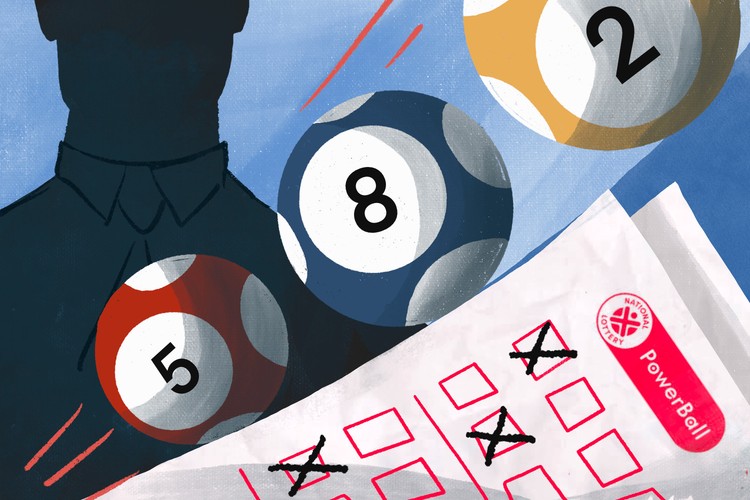Lottery corruption: Alfred Nevhutanda goes to court
Former Lotteries boss wants to stop probe launched by President Ramaphosa
Former National Lotteries Commission head Alfred Nevhutanda is asking the courts to declare the probe into lottery funds launched by President Cyril Ramaphosa unlawful. Graphic: Lisa Nelson
- Former National Lotteries Commission chairman Alfred Nevhutanda is going to court to challenge the probe into lottery funds launched by President Cyril Ramphosa.
- Ramaphosa signed a proclamation in 2020 giving the Special Investigating Unit the green light for the probe.
- This led to the freezing of millions of rands in assets, including Nevhutanda’s Pretoria mansion.
- The former Lotteries Commission boss says the probe is unlawful because the Commission is not an organ of state, nor does it deal with public money.
- The application is pending before the Pretoria High Court.
The former chairman of the National Lotteries Commission (NLC) Alfred Nevhutanda is going to court to challenge the proclamation signed by President Cyril Ramaphosa giving the Special Investigating Unit the go-head to investigate the affairs of the commission.
This investigation led, among other things, to the freezing of a R27-million Pretoria mansion owned by Nevhutanda.
Nevhutanda, in his pending application before the Pretoria High Court, wants the proclamation, signed in October 2020, to be declared unlawful because the NLC is not an organ of state, nor does it deal with public money which, he says, are prerequisites under the SIU Act.
Further, he says, the proclamation is too broad - giving the SIU the power to “go on a fishing expedition, permitting it to turn over any stone to its heart’s content”.
The first step in the application, which was filed in April this year, was for the President to file the written record of the decision.
That has now been filed and Nevhutanda is expected to file a further affidavit before the President and the government respondents file their papers.
In his affidavit, Nevhutanda describes himself as the Chairperson of the Higher Grace Christ Redeemer Church.
He served as chairperson of the Lotteries Board between December 2009 and November 2020.
With reference to the freezing of the property, he claims it is registered in the name of his spouse. However, he says, the property should never have been frozen because the order was issued following the SIU investigation on a proclamation which “cannot pass muster”.
He says this is because the affairs of the NLC, the National Lottery Distribution Trust Fund and the distributing agencies do not fall within the definitions in the Act, because they are not state institutions, do not receive or expend public money and do not control state assets.
The money, he said, is simply raised through the sale of lottery tickets and the proceeds of that sale.
Nevhutanda said to the best of his knowledge, the allegations of “maladministration” came by means of news reports during the latter part of his tenure and referred to “pro-active funding” as opposed to applications for funding.
He said the SIU investigators seemed to be “dwelling under the mistaken belief” that the NLC held ownership of the money held in trust, and that the NLC allocated grant funding.
In fact, he said, the NLC had no control over the affairs of the trust and was not involved in the process of allocating grant funding. The trust also received no funding from the public purse.
The distributing agencies were appointed by the minister, and they operated independently. They reported to the board but that was limited to reporting on grants already awarded, and on performance.
“The distributing agencies consider all grant funding applications. If approved, a grant agreement is entered into between the applicant and the trust. The NLC is responsible for effecting transfer of the money from the bank account of the trust on terms approved by the distributing agency,” he said.
Dealing with “proactive funding”, Nevhutanda said the aim was to fund high impact national priority projects which had been identified by a business development department with the assistance of an independent research panel, including the University of Pretoria, the University of South Africa, and Statistics SA.
Worthy projects were then presented to the distribution agencies. There was a “lengthy oversight process and it’s unlikely that any senior official or employee can abuse the process,” he said, saying any reference to a “slush fund” should be dismissed.
(Proactive funding was introduced in an amendment to the Lotteries Act that was promulgated in 2015. This allowed the Minister of Trade and Industry, who has oversight of the Lottery in consultation with the NLC board, to fund projects without requiring an application. Hundreds of millions of rands were misappropriated this way. Proactive funding has now been suspended.)
Nevhutanda said because of the invasive nature of SIU investigations, proclamations needed to give “exact instructions” to the SIU to stop rights infringements and prevent “limitless expeditions”.
The proclamation, he said, made no mention of proactive funding when this was the “real bone of contention”.
“The NLC is also not a State institution. The State has no financial interest in it. It cannot be defined as a public entity over which the SIU has jurisdiction,” he said.
“The proclamation cast a wide net, wide enough to include any and all people associated with the affairs of the NLC, in all matters of the investment of funds in the trust, and the allocation of grant funding over a period of at least six years and 10 months, said Nevhutanda.
“The net effect being that at least 14,627 recipients of grant funding may be subjected to the powers conferred on the SIU and their right to privacy invaded while the President had in all probability never been advised of them having acted unlawfully or improperly as envisaged by the SIU Act.”
Nevhutanda said it was initially estimated that the investigation would take a year, and cost about R30.5-million. The investigation had now been going on for three years with no indication of how much it was costing.

A photo of former National Lotteries Commission (NLC) board chair Alfred Nevhutanda’s house taken from an estate agent’s advert. (Copied for fair use)
Support independent journalism
Donate using Payfast

Don't miss out on the latest news
We respect your privacy, and promise we won't spam you.
Next: Power restored to Diepsloot welfare organisations at last
Previous: SA Deaf Rugby hosts its first international tournament
© 2024 GroundUp. This article is licensed under a Creative Commons Attribution-NoDerivatives 4.0 International License.
You may republish this article, so long as you credit the authors and GroundUp, and do not change the text. Please include a link back to the original article.
We put an invisible pixel in the article so that we can count traffic to republishers. All analytics tools are solely on our servers. We do not give our logs to any third party. Logs are deleted after two weeks. We do not use any IP address identifying information except to count regional traffic. We are solely interested in counting hits, not tracking users. If you republish, please do not delete the invisible pixel.

